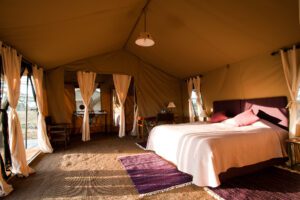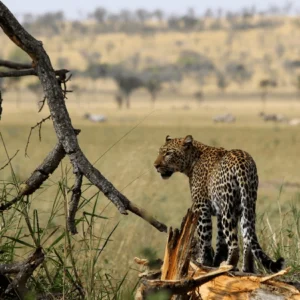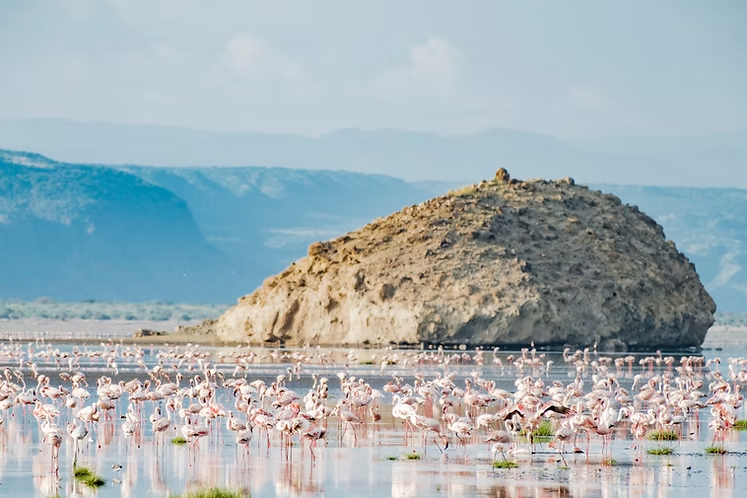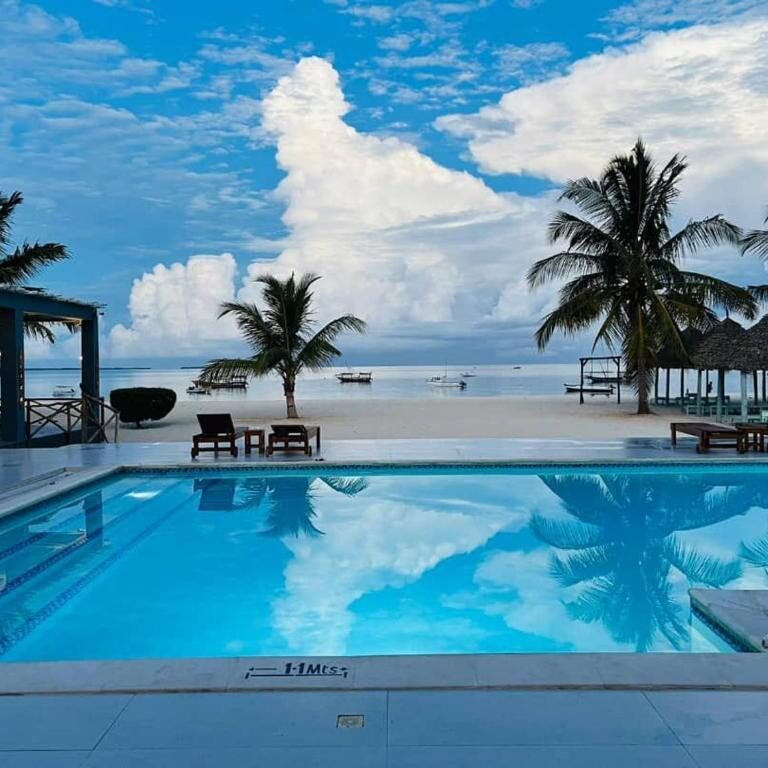Embarking on your first African safari is a thrilling adventure that promises unforgettable encounters with some of the world’s most majestic wildlife. However, to ensure your experience is as seamless and enjoyable as possible, there are several important factors you must consider before booking. This comprehensive guide will walk you through everything you need to know, from choosing the best time to visit, selecting the right destination, understanding safari types, and packing essentials, to ensuring your safety during the trip. With the right preparation, your African safari will be a truly life-changing experience.
Choosing the Best Time for Your African Safari
The timing of your safari can significantly impact the quality of your experience. Africa’s climate varies across regions, and understanding when to visit is crucial.
Dry Season vs. Wet Season: The dry season, which typically runs from June to October, is often considered the best time for an African safari. During this period, the vegetation is sparse, making it easier to spot wildlife as they gather around water sources. The Great Migration, one of nature’s most spectacular events, also occurs during this time in the Serengeti and Masai Mara.
The wet season, on the other hand, occurs from November to May. While the landscape is lush and green, wildlife viewing can be more challenging due to dense vegetation. However, this season is perfect for birdwatchers, as migratory birds flock to the region, and it’s also the calving season for many animals, providing a unique opportunity to see newborns.
Peak vs. Off-Peak Seasons: Safari prices and crowd levels also vary between peak and off-peak seasons. The peak season coincides with the dry season when wildlife viewing is at its best, but this is also when prices are highest, and popular parks can be crowded. If you prefer a quieter, more affordable experience, consider traveling during the shoulder months of May and November, when you can still enjoy good wildlife viewing without the peak season rush.
Selecting the Right Safari Company
Not all safari operators are created equal. Research is key Natural Habitat Adventures: Adventure Travel & Nature Tours. Look for companies with great reviews, experienced guides, and a commitment to conservation. A knowledgeable guide can make your safari more enriching by sharing insights about the wildlife and environment. An African safari can be a life-changing experience. Imagine watching a herd of elephants crossing the savanna or hearing the roar of a lion at dusk. Every moment is a reminder of nature’s beauty and power. With this guide as your compass, you’re ready to embark on a thrilling journey into the heart of Africa. Explore, enjoy, and create memories that will last a lifetime!
Selecting the Right Safari Destination
Africa is vast, with numerous countries offering diverse safari experiences. Choosing the right destination depends on your interests, budget, and the type of wildlife you wish to see.
East Africa vs. Southern Africa: East Africa, particularly Kenya and Tanzania, is renowned for the Great Migration, where millions of wildebeest, zebras, and gazelles traverse the Serengeti and Masai Mara. This region also offers excellent opportunities to see the “Big Five” (lion, elephant, buffalo, leopard, and rhinoceros) in iconic parks like Serengeti National Park, Ngorongoro Crater, and Amboseli National Park.
Southern Africa offers a different kind of safari experience. Countries like South Africa, Botswana, and Namibia boast diverse landscapes, from the lush Okavango Delta to the arid deserts of Namibia. South Africa’s Kruger National Park is famous for its accessible game viewing, while Botswana’s Chobe National Park and Namibia’s Etosha National Park offer more remote, intimate experiences.
Private Reserves vs. National Parks: When selecting your destination, consider whether you prefer a private reserve or a national park. Private reserves often offer more exclusive and luxurious experiences, with fewer tourists, off-road game drives, and guided walking safaris. However, these come at a higher cost. National parks, on the other hand, are more affordable and offer vast, protected areas where you can experience wildlife in its natural habitat. However, they can be crowded during peak seasons, and activities are more regulated.
Understanding Different Safari Types
The type of safari you choose will shape your experience, from how you view wildlife to the level of comfort and adventure you’ll have.
Game drives are the most common safari type, involving guided tours in 4×4 vehicles. These are ideal for first-time visitors, as they offer a safe, structured way to see wildlife. Game drives are usually conducted in the early morning and late afternoon when animals are most active.
For a more immersive experience, consider a walking safari. Led by experienced guides, these safaris allow you to explore the African bush on foot. Gaining a deeper understanding of the ecosystem and its inhabitants. Walking safaris are particularly popular in Zambia, South Africa, and Tanzania.
Boat safaris offer a unique perspective, allowing you to explore Africa’s rivers and lakes. Where you can observe wildlife like hippos, crocodiles, and water birds. Destinations like Botswana’s Okavango Delta and Zambia’s Lower Zambezi National Park are famous for their boat safaris.
For a truly unforgettable experience, a hot air balloon safari is a must. Floating above the plains at sunrise, you’ll enjoy a bird’s-eye view of the landscape and wildlife below. This is particularly popular in Tanzania’s Serengeti National Park and Kenya’s Masai Mara.
Packing Essentials for Your African Safari
Packing for a safari requires careful consideration. As you’ll need to be prepared for varying climates and conditions while keeping your luggage light.
Clothing: Opt for lightweight, breathable clothing in neutral colors like khaki, beige, and olive, which blend in with the environment and minimize your visibility to wildlife. Long-sleeved shirts and pants are essential for protecting against the sun and insects. A wide-brimmed hat, sunglasses, and a good-quality sunscreen are also must-haves.
Footwear: Comfortable, sturdy footwear is crucial, especially if you plan to participate in walking safaris. Hiking boots or trail shoes with good ankle support are recommended.
Accessories and Gear: Binoculars, a high-quality camera with a zoom lens, and a field guide are essential for wildlife viewing. Don’t forget a reusable water bottle to stay hydrated everything you need to know before booking your first African safari. Consider bringing a small daypack for carrying your essentials during game drives and walks.
Health and Safety Items: Pack any necessary medications, along with a basic first aid kit. Anti-malaria medication recommended for most safari destinations, as is insect repellent. It’s also wise to carry hand sanitizer and wet wipes for hygiene purposes.
Ensuring Your Safety During the Safari
Safety is a top priority on any safari everything you need to know before booking your first African safari. By following a few simple guidelines, you can minimize risks and ensure a safe and enjoyable experience.
Listening to Your Guides: Your guides highly trained and experienced in navigating the African wilderness. Always listen to their instructions, particularly regarding safety around wildlife everything you need to know before booking your first African safari. Never attempt to approach or feed animals, and remain inside the vehicle unless your guide says it’s safe to exit.
Wildlife Encounters: While it’s thrilling to see animals up close, it’s important to remember that you are in their territory. Keep a safe distance from all wildlife, and never make sudden movements or loud noises that could startle them. If you’re on a walking safari, stay calm and follow your guide’s lead in case of a close encounter.
Health Precautions: Before traveling, consult your doctor about necessary vaccinations and medications, including anti-malaria tablets. It’s also wise to purchase comprehensive travel insurance that covers medical emergencies and evacuation.
Final Thoughts
Booking your first African safari is a significant decision that requires careful planning and preparation. By choosing the right time to travel. Selecting the perfect destination, understanding the different types of safaris, packing appropriately. Prioritizing safety, you can ensure that your adventure is both thrilling and memorable. Africa’s untamed beauty awaits you, promising an experience like no other.








